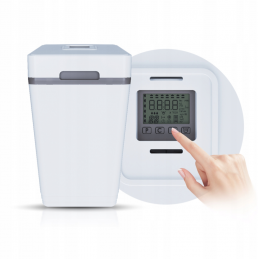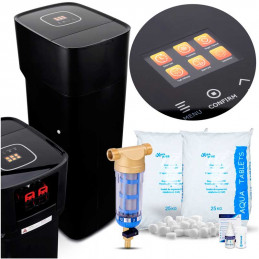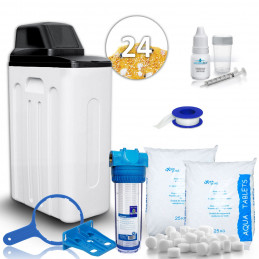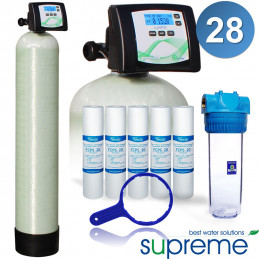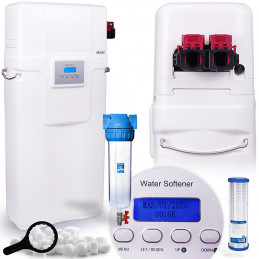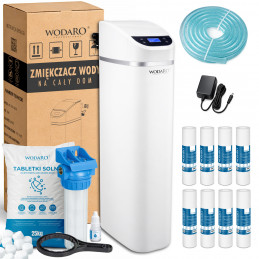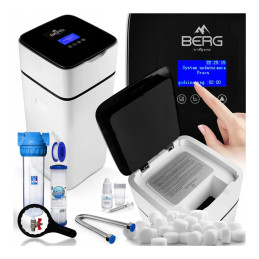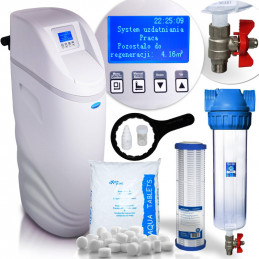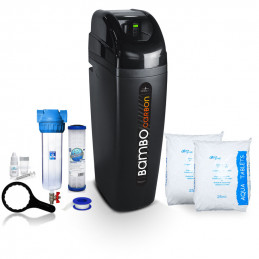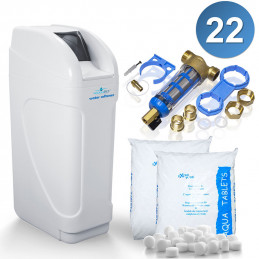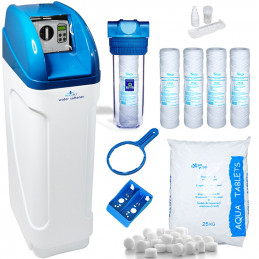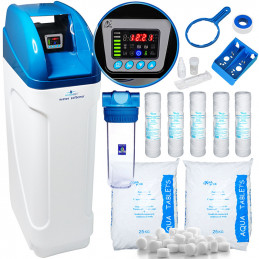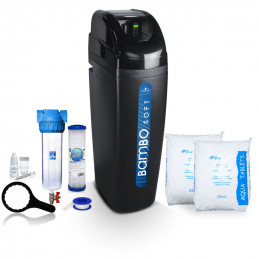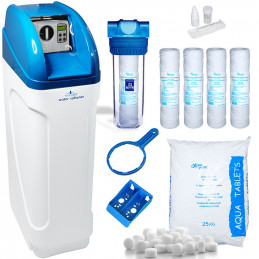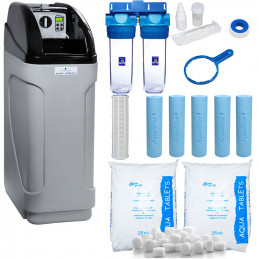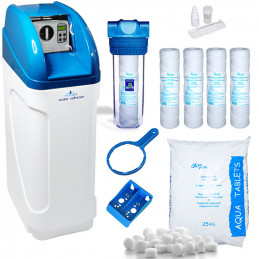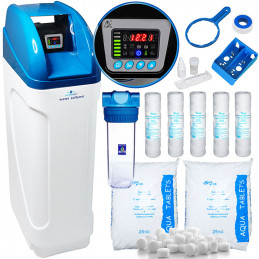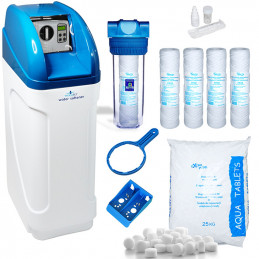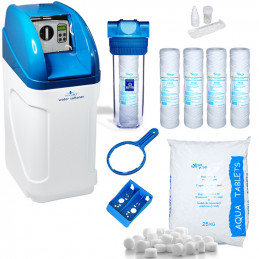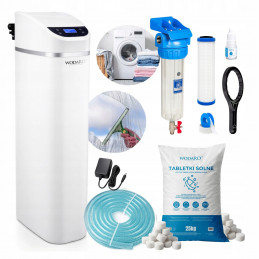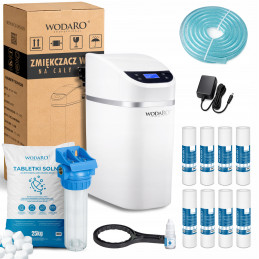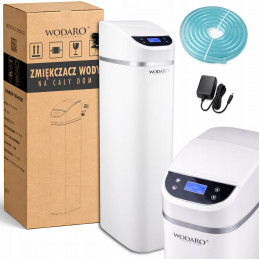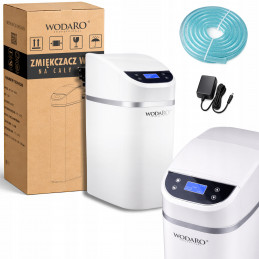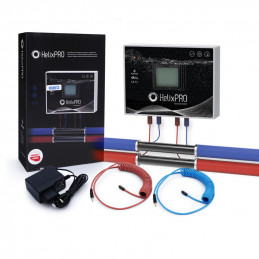- There are no more items in your cart
- Shipping
- Total 0.00 zł
- Bestsellers
- Wholesale
- Water filters
- Whole house filters
- Kitchen filters
- Bathroom filters
- Aquarium filters
- Reverse osmosis
- Water demineralizers
- Filter cartridges
- UV bactericidal lamps
- Alkaline water ionizers
- Industrial water filters
- Accessories, parts, and others
- Descaling filters for the coffee machine
- Water softeners and iron removers
- Water saturators
- ACES
- AMBERLITE
- AQUA VITA
- AQUAFILTER
- AQUAPHOR
- AQUATOR
- BASSAU
- BERG
- BIOCERA
- BIONIQ
- BLUEFILTERS
- CHEMOFORM
- CINTROPUR
- DAFI
- DELONGHI
- DIAMOND
- DOM WODY
- ECOWATER
- FILMTEC
- FIT ALCO
- FITAQUA
- GREEN FILTER
- HANNA INSTRUMENTS
- HELIXPRO
- HELLO PURE
- HIDROTEK
- HM-DIGITAL
- HONEYWELL
- Ibo
- JAVEL
- KLARWOD
- KRUPS
- MIDEA
- OTOWODA
- OTTONE
- Palintest
- PENTAIR
- PHILIPS
- PLATINUM WASSER
- PUROLITE
- SIEMENS
- Steingraf
- SUPREME
- TAB-SOL
- TOP FILTER
- UST-M
- USTM
- VONTRON
- WODARO
Tips
Water Softeners for Apartments: An Effective Way to Clean Water
A water softener for apartments is a device that is becoming increasingly popular among residents of apartment blocks and single-family homes. Hard water, rich in minerals such as calcium and magnesium, can lead to serious problems with both plumbing systems and household appliances. In this article, we will explore why it is worth investing in a water softener for your apartment, how such a system works, what its benefits are, and what to pay attention to when choosing and installing one.
Filter
Hard Water Problems
Hard water is a problem that affects many households. It is characterized by a high content of calcium and magnesium ions, which contribute to the formation of scale. Scale builds up in pipes, appliances such as washing machines and dishwashers, as well as on bathroom and kitchen fixtures, causing them to wear out faster and increasing operating costs. Additionally, hard water makes soaps and detergents lather poorly, which in turn leads to greater consumption of strong detergents. The issue of hard water also affects the shower faucet and other components of the plumbing system.
How does a water softener for apartments work?
A water softener for apartments works on the principle of ion exchange. Water flows through a ion exchange resin, which removes calcium and magnesium ions, replacing them with sodium ions. This process makes the water soft, significantly reducing the risk of scale formation. Water softening occurs automatically, and the device does not require much user intervention. The water softener is equipped with liters of ion exchange resin that effectively captures unwanted ions.

Benefits of installing a water softener
Investing in a water softener for apartments brings many benefits:
-
Protection of household appliances: Washing machines, dishwashers, and other household devices last longer and operate more efficiently when protected from scale deposits.
-
Better water quality: Soft water is more friendly to skin and hair, and it also improves the taste of beverages prepared at home.
-
Lower operating costs: Reduced consumption of detergents, soaps, and cleaning agents, as well as lower energy consumption by household appliances.
-
Longer lifespan of plumbing systems: The absence of scale deposits in pipes and appliances reduces the risk of failures and costly repairs.
-
Aesthetics: No deposits on fixtures, such as shower faucets or taps, which improves the appearance of the bathroom and kitchen.
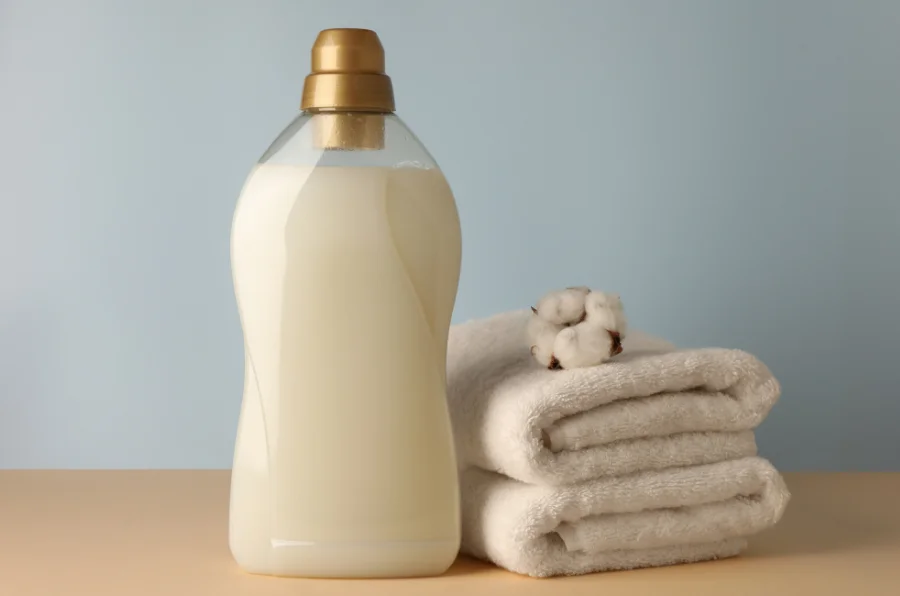
Types of cold water softeners
There are various types of water softeners available on the market that can be tailored to the specific needs of apartment and house residents. Among them, we distinguish:
-
Central water softener: Installed at the main water supply to the apartment, providing soft water throughout the house.
-
Compact water softener: Ideal for smaller apartments where space is limited. Such a compact softener can be easily installed under the sink or in another convenient location.
-
Softeners with a control head: Equipped with advanced control systems that automatically adjust the water softening process to the water consumption in the apartment.
How to install a water softener?
Installing a water softener is straightforward but requires following a few basic rules:
-
Choosing the right location: The softener should be installed close to the main supply of cold water to ensure effective softening of all water in the apartment.
-
Connecting to the plumbing system: The water softener for the apartment must be connected to the plumbing system, which requires knowledge of basic plumbing principles.
-
Connecting the drain to the sewage system: The water used for regenerating the resin must have a drainage connection to the sewage system.
-
Configuring the device: Depending on the model, the softener may require setting appropriate parameters, such as water hardness.
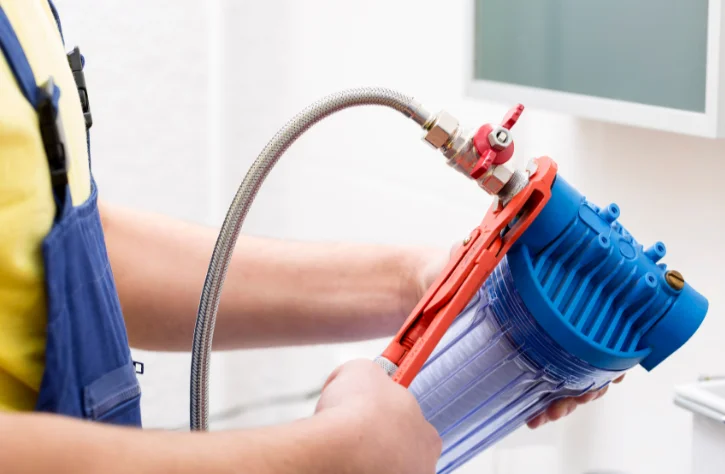
Possibilities of installing a water softener
Depending on the layout of the apartment and individual needs, a water softener can be installed in various locations. Apartment buildings often have limited space, so a compact water softener is an ideal solution. In single-family homes, where space is not as much of an issue, a central water softener can be installed to provide soft water throughout the house.
Operation and maintenance of the water softener
To ensure the water softener operates correctly, regular maintenance must be performed. This includes:
-
Salt replacement: The ion exchange resin requires periodic regeneration using salt. Regularly replenishing salt is crucial for the effective operation of the softener.
-
Replacing cartridges: Some models require regular cartridge replacement to maintain high water softening quality.
-
Cleaning: Periodic cleaning of the softener and checking its technical condition will ensure long and trouble-free operation of the device.
Operating costs of the water softener
Investing in a water softener for apartments brings many benefits but also involves certain operating costs. Consider the following:
-
Cost of salt for regeneration: Regularly replenishing salt is necessary, but it is not a significant expense.
-
Electricity consumption: Water softeners consume minimal electricity, which does not significantly impact energy bills.
-
Service costs: Regular maintenance and potential repairs may incur additional costs, but they ensure the long lifespan of the device.
Additional benefits of having a water softener
-
Energy savings: Water softeners reduce the buildup of scale in heating systems, leading to lower energy losses and more efficient heating. A smaller amount of deposits in the heating boiler means faster heating of hot water, which in turn translates to lower electricity bills.
-
Better quality of life: Softened water makes baths more enjoyable, and skin and hair are healthier. Soft water also improves the taste of dishes and beverages prepared at home, such as tea or coffee.
-
Fewer breakdowns: Regular use of a water softener minimizes the risk of plumbing and appliance failures, meaning fewer problems and lower repair costs.
Environmental impact - eliminating water hardness
Water softeners also have a positive impact on the environment. By softening water, we use fewer detergents and cleaning agents, which reduces the amount of chemicals entering the sewage system. Additionally, lower energy consumption by household appliances means reduced CO2 emissions.
Summary
Water softener for the apartment is an investment that brings many benefits. Thanks to it, we gain soft water, which protects our household appliances, improves the taste of beverages prepared at home, and ensures better quality water for everyday use. Choosing the right model, its proper installation, and regular maintenance are the keys to the effective operation of the softener. By investing in a water softener, we gain not only clean water but also savings on operating costs and a longer lifespan for our appliances. Installing a water softener in the apartment is a step towards a healthier and more comfortable life.
It is also worth noting that water softening has a positive impact on water treatment in the apartment, which translates into a better quality of life for the household members. Thanks to water softeners, we can enjoy soft water, which is friendly to our health and equipment. Water consumption in the household becomes more efficient, and we can enjoy clean and healthy water every day.




